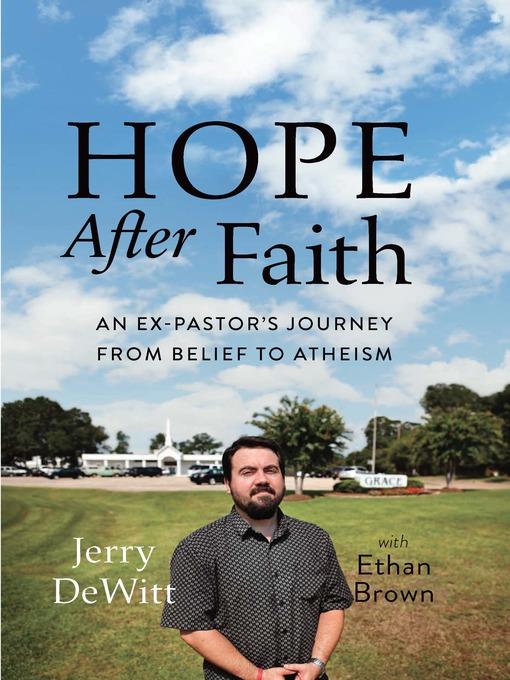
Hope after Faith
An Ex-Pastor's Journey from Belief to Atheism
کتاب های مرتبط
- اطلاعات
- نقد و بررسی
- دیدگاه کاربران
نقد و بررسی

May 13, 2013
Debut author DeWitt tells the tale of how he went from darling Pentecostal preacher to shunned atheist in his new memoir. In the first part of his story, DeWitt describes his smalltown upbringing and immersion in the fundamentalist, Bible-thumping Christianity of his native Louisiana. This section is told in great detail—almost too much detail. Nonetheless, this part of the book is a fascinating insider’s tour of the often-mystifying doctrines of Pentecostalism, which shuns the material world for “gifts of the spirit,” like speaking in tongues and prophesizing—both of which DeWitt engaged in himself. The book’s second half tells of DeWitt’s growing doubts about God, the idea of hell, the nature of sin, and the existence of an afterlife. This part of the book is deeply intriguing, offering a firsthand account of the slow crumbling of a life’s foundation in faith and its consequences: loss of family and livelihood in exchange for peace of conscience and a new community of atheist friends. Those who share DeWitt’s perspective—and even those who are true believers—will find much to engage them. Agent: David Patterson, Foundry Media.

June 1, 2013
Middling account of an evangelical's 180, written with the assistance of co-author Brown (Shake the Devil Off: A True Story of the Murder that Rocked New Orleans, 2009, etc.). Saul required a vision from Yahweh and a fall from a donkey before trading in his publican job for sainthood. DeWitt, a Louisiana-born, peripatetic pastor, drifted away from faith with no such drama, just a gradual whittling away of his former beliefs--and while dramatic moments are relatively few in most people's lives, they do help keep a story moving along. In this instance, a death of a cousin helped rattle DeWitt's nerves, as did a long spell of disappointing encounters with prophets ultimately suspected to be false ("my shaky, tentative faith in the fanatical, me-first teachings of Brother Goodwin was shored up by more practical, Earthly concerns"). DeWitt's repudiation of hard-shell Protestantism is one thing; his neighbor's resulting repudiation of him and the joblessness and divorce that accompanied his fall from grace complete the package. What is more interesting to nonevangelical readers is not really DeWitt's journey into the wilderness but instead his encounter of the business of preaching--and business it is, as his early hero Jimmy Swaggart well knew. The author notes that there's a difference between mere preaching and tent-show revivalism ("as a preacher at a revival it is your job to evangelize to the congregants and then they, in turn, evangelize to their community"). Indifferently written and slow-moving, DeWitt's testimonial is a test of patience. There is one valuable takeaway, though: his reckoning that "the majority of ministers that I have learned to love over the last twenty-five years of my life in the church are actually agnostic but don't really know it." For true believers only--in atheism, that is. Students of the business of religion will find only occasional pearls.
COPYRIGHT(2013) Kirkus Reviews, ALL RIGHTS RESERVED.

























دیدگاه کاربران